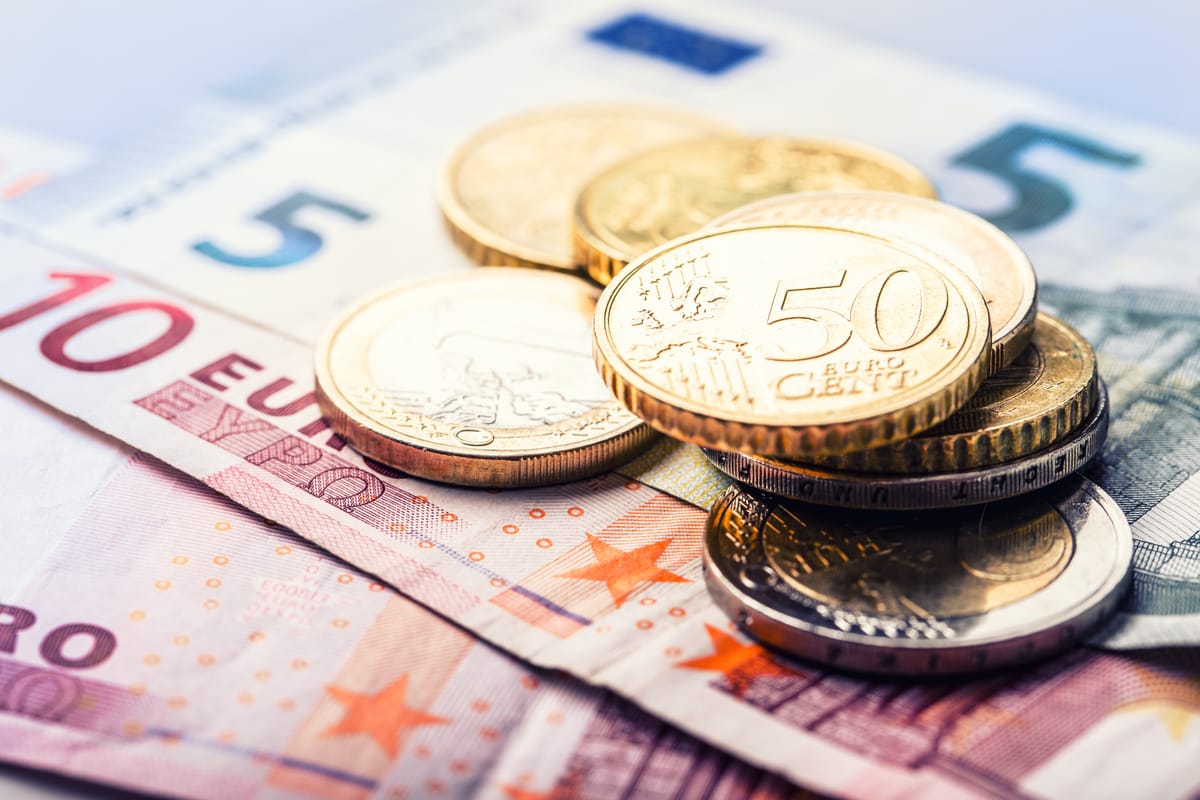GBP/EUR exchange rate midweek update: pound briefly touches four-day low against euro
The pound euro (GBP/EUR) exchange rate was largely subdued amid a raft of economic indicators from the Eurozone.

(07/10/2024 to 09/10/2024)
Monday
The pound euro (GBP/EUR) exchange rate fell to a fraction above the 1.19 benchmark following encouraging retail sales figures from the Eurozone that led investors to dial back European Central Bank (ECB) interest rate cut bets – boosting the single currency.
Retail sales in the bloc grew 0.2% in August in line with economists’ expectations, rising from July's flat reading. However, the euro’s gains were capped by German factory orders which plunged 5.8%, marking their worst decline since January.
The pound was subdued amid an absence of macroeconomic data from the UK economy.
Tuesday
The pound briefly slipped to a four-day low of 1.1895 against the euro after better-than-forecast German data lifted the single currency.
Industrial production in the Eurozone’s largest economy saw a 2.9% month-on-month increase in August. This marked an impressive rebound from a -2.9% decline the previous month and exceeded the 0.8% recovery analysts had predicted.
However, the euro’s upside was limited by dovish comments from ECB policymaker Mārtiņš Kazāks, who reiterated his support for an interest rate cut at the central bank’s next policy meeting.
Wednesday
The pound euro rate was listless, trading around 1.1933 despite forecast beating figures from Germany, where August’s trade surplus increased from €16.9 billion to €22.5 billion, outstripping a more modest €18.4 billion estimate.
The upbeat trade data and risk-off sentiment did little to invigorate the safe-haven euro.
The pound struggled to garner investor attention amid a lack of data from the UK economy, although it remained buoyant despite the cautious market mood.
Looking ahead
Germany’s latest retail sales data hits the headlines on Thursday. If the figures for August report another negative reading, ECB interest rate cut speculation will increase, potentially applying pressure to the euro.
The German consumer price index is scheduled for release on Friday. If, as expected, the print shows inflation in the largest economy in the bloc remained at 1.8% in September, ECB rate cut speculation could ramp up further.
The main catalyst for pound movement on Friday will be the latest GDP data from the UK, which is expected to report that the economy grew 0.2% in August after activity flatlined in July for a second month. This could boost the pound if investors reduce Bank of England (BoE) rate cut bets.
